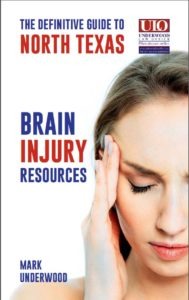
If you were injured on someone else’s property, you may sue to seek compensation for your injuries. These lawsuits are called “premises liability” cases. Many times, premises liability lawsuits will also have a claim for negligence in them.
There are many different kinds of premises liability cases. Some of the premises liability cases that we see most often are slips and fall and trips and falls at retail and grocery stores like Kroger, Walmart, Central Market and HEB. But, premises liability cases can also arise from injuries at another person’s home, swimming pools, dog attacks, falls down stairs, slip and falls and negligent security.
For a free legal consultation, call (972) 535-6377
Your ability to succeed on a premises liability claim largely depends upon proving three elements: an unreasonably dangerous condition existed on the owner’s property, your injury was caused by the condition, and the owner either knew or should have known of the dangerous condition, and failed to warn against or correct it. Those requirements were refined in the Brookshire Grocery Co. v. Taylor, 222 S.W.3d 406 (Tex 2006) case. In that case the Texas Supreme Court held that the plaintiff specifically has to prove:
1 The business had actual or constructive knowledge of a condition on the premises;
2.The condition posed an unreasonable risk of harm;
3. That the business did not exercise reasonable care to reduce or to eliminate the risk; and
4 The store’s failure to use such care proximately caused the plaintiff’s injuries.
The plaintiff must prove that it is more likely than not that the dangerous condition existed for a long enough period of time to give the business a reasonable opportunity to discover the hazard and fix it. Sometimes video footage will be available to establish how long the hazardous condition existed. Most of the time all the evidence of constructive knowledge will be entirely circumstantial.
The purpose of your presence on the property also plays a critical role. A visitor on a property may fall into three categories: invitee, licensee, or trespasser. The owner’s legal responsibility toward each category of visitor differs.
Click to contact our personal injury lawyers today
Property owners owe invitees the highest duty of care. An ‘invitee’ is a person on the property at the owner’s express or implied invitation for a mutual benefit. For example, a customer shopping in a grocery store is ‘invitee.’ Owners must protect the invitee by maintaining the premises in reasonably safe conditions or warn them of dangerous conditions they know or should have known about.
Complete a Free Case Evaluation form now
A ‘licensee’ is someone whom an owner expressly or implicitly invites onto the property for non-commercial purposes, such as a social guest. Owners have a moderate duty of care toward licensees. The owner can be held liable for a licensee’s injuries if they knew or should have known of an unreasonably dangerous condition on the property, failed to notify the licensee, and the licensee didn’t or had no reason to know of the condition or the risk.
Owners have the least responsibility toward a trespasser. A trespasser is someone who has entered the property without the owner’s permission or any other authority. In this case, owners may not intentionally injure or undertake an act of “gross negligence” (a willful disregard of serious injury) toward the trespasser.
Proving premises liability isn’t easy. You’ll need a skilled and experienced Texas personal injury lawyer to carefully investigate the facts of the case and develop a strong strategy.
Contact us for more information.
Call or text (972) 535-6377 or complete a Free Case Evaluation form





